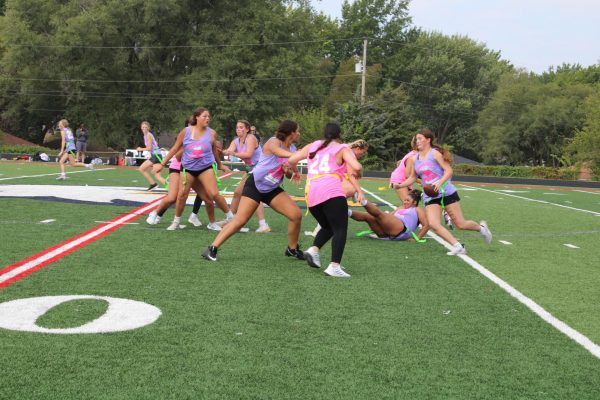Guest Column: The Power of Unity
April 19, 2021
In a time where partisanship has put a pause on progress, Amanda Gorman’s poetry has opened a door to conversation about unity in turbulent times. The youngest Inaugural poet in American history, Gorman’s “The Hill We Climb” presents a message of reconciliation and reform. It’s crucial that we apply her words to our lives. If there’s anything that 2020 has taught me, it’s that the power of unity drives change.
At times, I feel powerless against an imploding world. It is mentally draining to hear bad news on top of more bad news. Some may look down upon this reformist worldview, preferring to believe that America is fine as it is. I disagree with this mindset wholly. The past year has repeatedly demonstrated systemic flaws that will forever need to be addressed. It isn’t a lack of patriotism that fuels criticism, nor is it pessimism; it takes hope to believe that our country can be changed for the better.
As read in Gorman’s poem The Hill We Climb, “Somehow we’ve weathered and witnessed a nation that isn’t broken, but simply unfinished”.
From equality movements to finger-pointing across the political spectrum, a mishandled pandemic response and a sloppy transition of powers, there is significant room for improvement. As a generation that could be voting by the end of high school, it is our responsibility to stay educated and speak out.
“And so we lift our gazes not to what stands between us, but what stands before us,” Gorman stated.
When we come together, we have the power to induce change. After the murder of George Floyd in May, the movement Black Lives Matter was revitalized. Other instances of racial profiling and police brutality were put into the limelight, sparking continous conversation about psuedo-equality in America, and triggering reforms across the nation. This only proves that solidarity amplifies movements. Another line of Gorman’s The Hill We Climb reiterates her desire for reconciliation: “We lay down our arms so we can reach out our arms to one another”. Divisive rhetoric and half-truths destroy communities, leaving zero room for accountability nor change. Only through unity will we be able to make a difference.
Gordon stresses that “Inertia will be the inheritance of the next generation”. I think as a society, we forget that our collective goal is to make life better for future generations. This doesn’t mean that policymaking should center solely around preventative measures; obviously current issues take precedence. However, it is important to acknowledge that today’s actions will create ripples into the future. Beneficial changes are contingent on collaboration.
Amanda Gorman said it best with the line “So let us leave behind a country better than the one we were left with”. Feasible reforms are all incremental, but each step counts towards the future. “We will rebuild, reconcile and recover,” she stressed.
The closing line of Gorman’s poem reads as follows: “For there is always light, if only we’re brave enough to see it, if only we’re brave enough to be it”. Her words defined the beginning of a new era, one of unity and strength. Only after we come together as Americans can our nation become what our founding fathers intended, and it starts with you.


